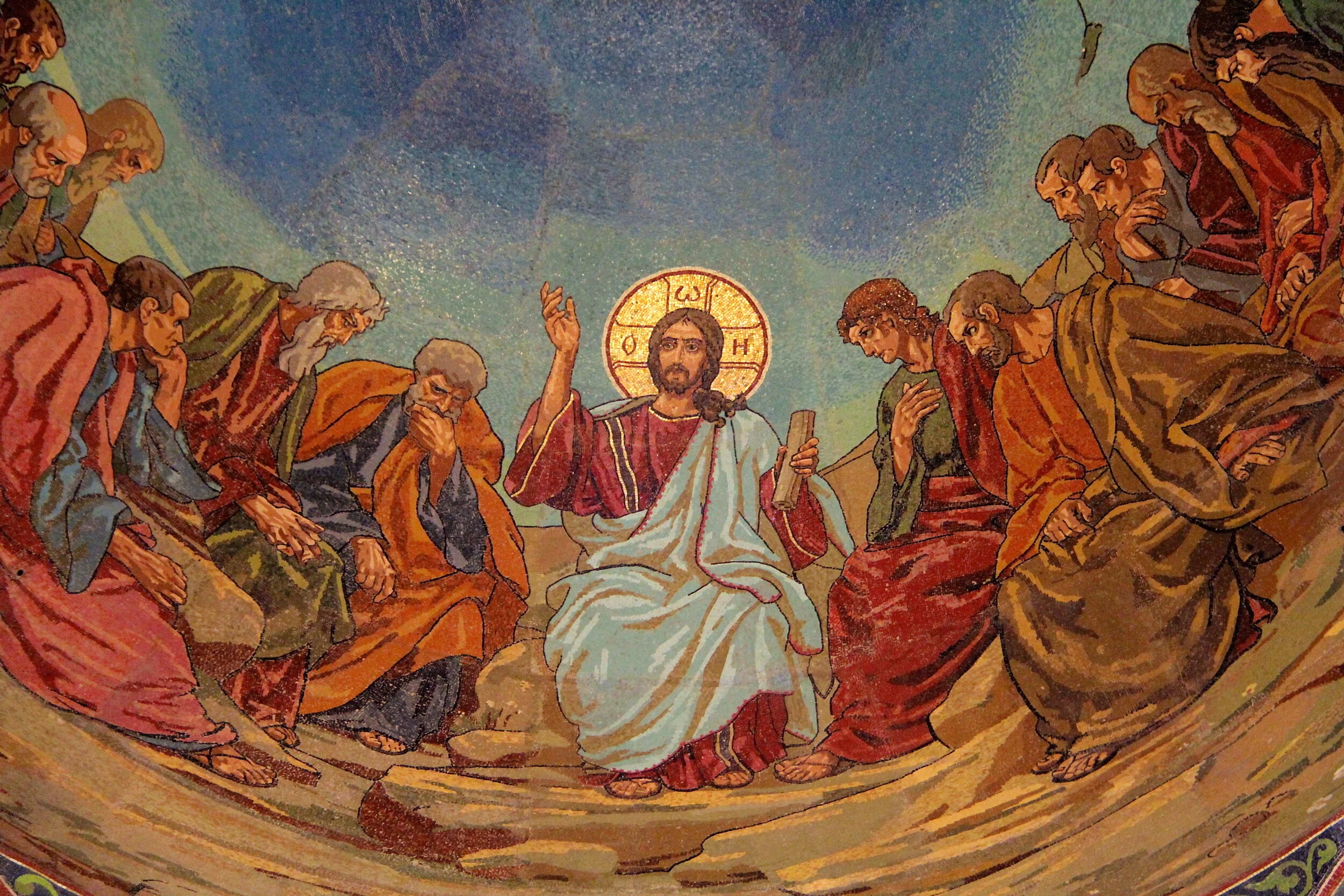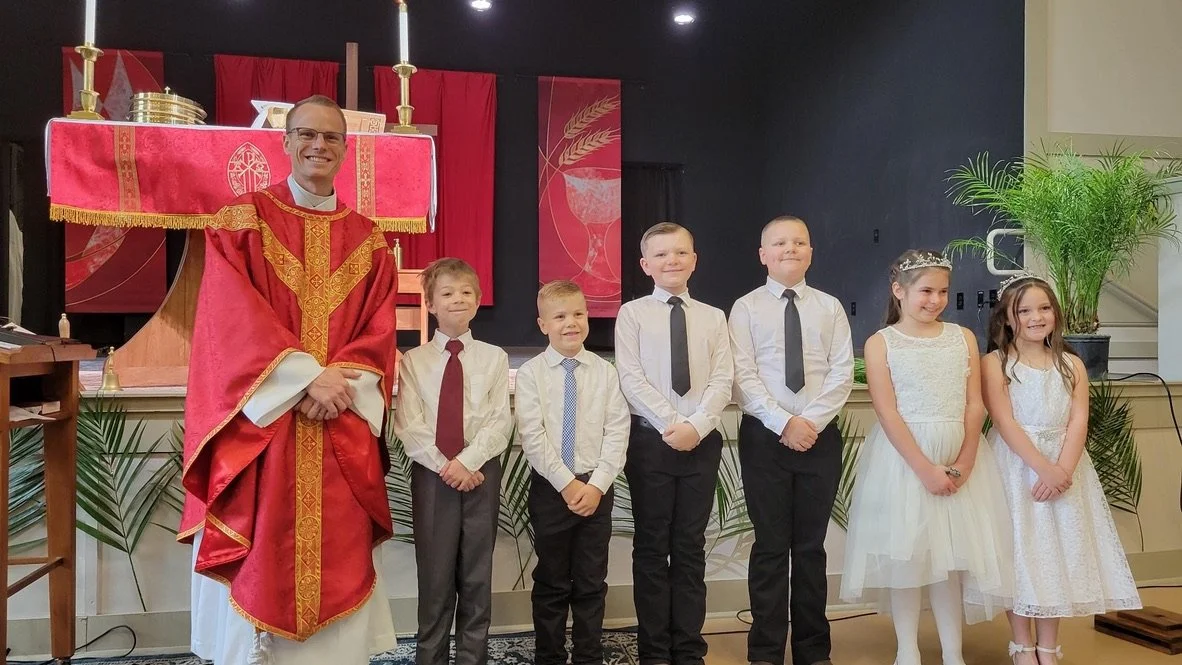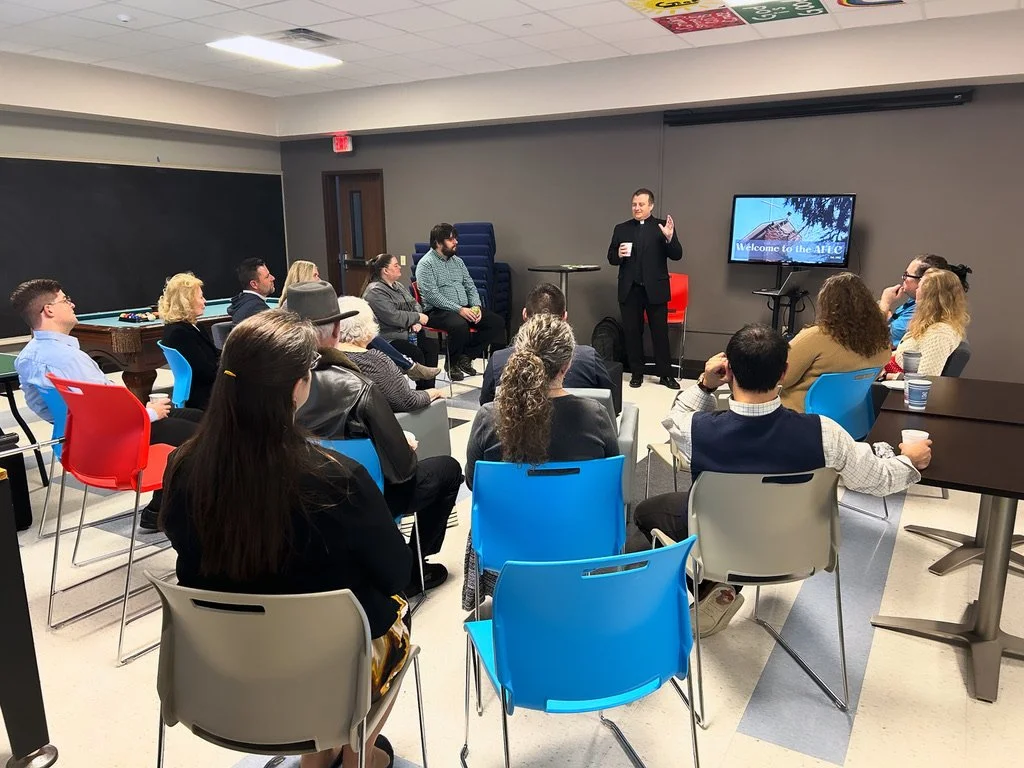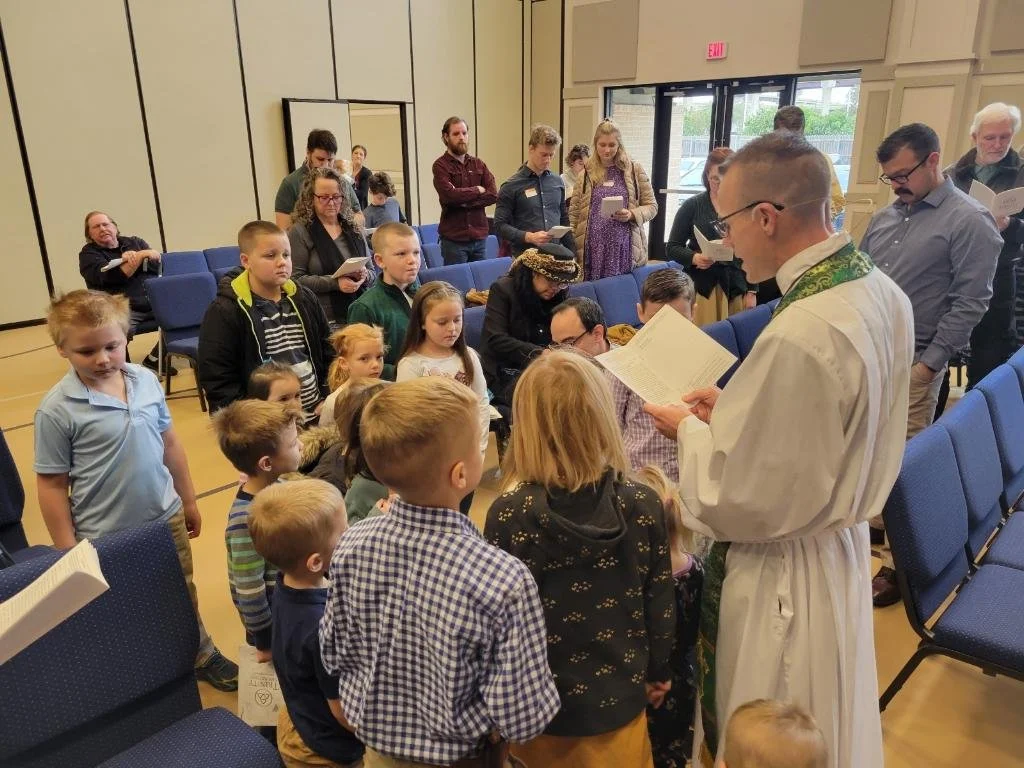SPIRITUAL FORMATION AT TRINITY
Believe in Christ.
Become Like Christ.
Go with Christ.
WHAT IS THE GOAL OF FAITH FORMATION?
Faith formation conforms us to the image of our Lord and Savior Jesus Christ.
Faith formation teaches the Christian how to pray with Christ.
Faith formation cultivates increased faith, hope, and love.
Faith formation promotes knowledge of the Christian faith.
Faith formation promotes moral formation in Jesus Christ.
Faith formation prepares the Christian to live in community and to participate actively in the life and mission of the Church.
Faith formation promotes knowledge of the meaning of the Liturgy and the Sacraments.
Faith formation promotes a missionary spirit that prepares us to be present as Christians in society.
HOW IS OUR FAITH FORMED?
We are formed in Christ and live out our mission of sharing together in God’s life through our five anchors:
WORSHIP - Worship of God and celebration of Word & Sacraments in the Divine Service as the foundation of everything we do.
BELONG - Embody God’s love for every person in every situation.
GROW - Continual pursuit of spiritual formation and growth through formal catechesis and the spiritual disciplines.
SERVE - Live out Jesus’ call of service to one another by serving near and far.
SHARE - Sharing our time and resources to build up the Kingdom of God and make a lasting difference.
Means of spiritual Formation
Formal Catechesis
At Trinity, there are several formal avenues by which the work of catechesis takes place, reflecting the reality that different parishioners are at different ages and stages of faith. Each parishioner is strongly encouraged to engage with the catechetical avenue(s) most appropriate for him or her. The three formal avenues of catechesis are as follows:
Children’s Catechesis. This ongoing class that happens during the Sermon time is designed for children ages 5-10. In this time we use the Enduring Faith Bible Curriculum which traces God’s plan of salvation throughout the entire Bible—pointing students to Jesus, their Savior. In Year 1 the curriculum provides an overview of the entire Bible, in Year 2 it takes an in-depth study of the Old Testament, and in Year 3 in-depth study of the New Testament.
First Communion Catechesis (Rite of First Communion) - These seven 45 minute sessions offered before the Divine Service on Sunday mornings prepare students 7 years and older to receive Holy Communion.
Student Confirmation (Rite of Confirmation) - This is a three year program designed for young people to be instructed in the Bible and six major parts of the Catechism (Ten Commandments, Apostles’ Creed, Lord’s Prayer, Baptism, and the Lord’s Supper).
Adult Confirmation - This ongoing class for all ages in preparation for confirmation.
Special Focus Classes - These happen throughout the year on Wednesday evenings or Sunday mornings before the Divine Service.
Non-formal
In a very real sense, everything that our parish does is catechetical. While not every aspect of our life together is identified as educational, every aspect is in fact formative. The Christian tradition, has a saying, lex orandi, lex credendi (roughly, “praying shapes believing”). It is our worship, then, as well as our other corporate gatherings, that contribute to our catechetical formation. Examples of where informal catechesis takes place in our parish include:
The Divine Service (Sunday worship). This central weekly act of our life together where we gather together in-person where God strengthens our faith, love, and hope through His Word and Sacraments.
Table Groups. Meeting every other week, Table Groups cultivate community and spiritual friendships within designated geographic areas.
Men’s & Women’s Fellowships. Meeting every other week, these fellowships offer further opportunities for spiritual friendships and accountability.
Formation at Home
St. John Chrysostom called the home a “little church,” rightly intuiting that the rhythms of our families are deeply catechetical in nature. Further resources for equipping families in the work of home catechesis will be provided in a separate document. Generally speaking, some of the aspects of “Home Catechesis” that we commend to all members of our parish include:
Praying Together. One of the gifts of the Small Catechisms is the short prayers that can be used in the morning, before bed, and at meals. It also has simple question and answers that can be used by parents in teaching their children the Christian faith.
See Family Discipleship page for how-to’s.
Sabbath. Making intentional choices to honor and keep the Sabbath is a powerful, counter-cultural action in our society today, and communicates volumes to our children about our true priorities.
We encourage you to complete a brief study of the theology and practice of Sabbath with a few friends at Trinity using John Mark Comer’s resources.
The Church Year. Observing the church calendar, with its various seasons, feast days, and fasts, enables us to live into God’s story anew each year. Opportunities abound for fun traditions to reach the hearts of even the youngest of children.





